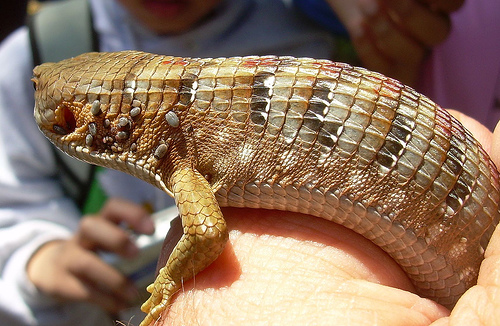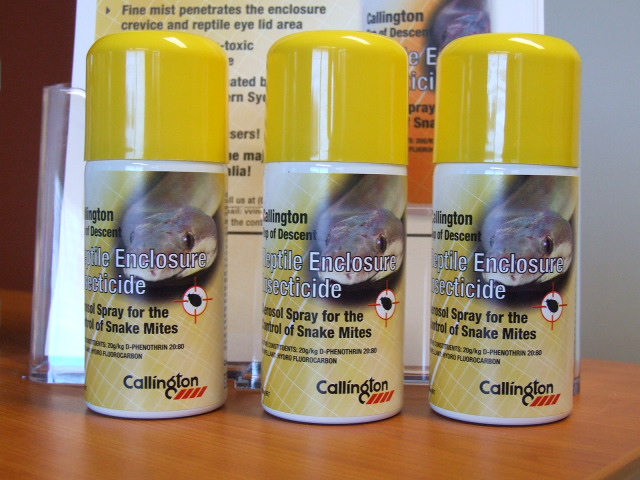Pesky Reptile Parasites
Parasites are animals that live on or in another animal (the Host). Although it is not their intention to kill the host, they do however usually have a deleterious effect. A parasite infestation can either be external or internal.
External Reptile Parasites
Reptile Parasites: Ticks
It would be extremely unusual for captive bred animals to have ticks. However if someone was to keep their animals outdoors or using natural substrates it is possible to introduce ticks to your reptiles.
 Ticks are blood feeders and on snakes take up their feeding position in the soft skin between the scales. The problem with ticks is that they irritate the reptile and a heavy infestation could cause anemia. Ticks can also carry other parasites and viruses that can be transferred via the blood feed.
Ticks are blood feeders and on snakes take up their feeding position in the soft skin between the scales. The problem with ticks is that they irritate the reptile and a heavy infestation could cause anemia. Ticks can also carry other parasites and viruses that can be transferred via the blood feed.
Reptile Parasites: Mites
The snake mite is also a blood feeder, a popular among reptile parasites. An indicator that your snake might have mites if it spends a lot of time soaking in its water bowl. Check in the water bowl for the mites that have drowned. These will be visible on the snake particularly around the eye socket, in the crease under the chin and under scales (look for scales that appear raised). If there is a heavy infestation the snake will also have number of white speckles in its body. This is in fact mite faeces.
Reptile Parasites: Treatments
 There are a variety of treatments available. The one I prefer is an aerosol sold by Callington Haven called Top of Descent spray (D-Phenothrin). This is convenient as you can simply remove the water bowl and spray a fine mist in the cage for a few seconds (leaving the snake in the cage). After 10 minutes, open the door and ventilate. The spray seems to degrade after about 12 hours, so it will be necessary to repeat the treatment in 5 days to treat any eggs that may have hatched.
There are a variety of treatments available. The one I prefer is an aerosol sold by Callington Haven called Top of Descent spray (D-Phenothrin). This is convenient as you can simply remove the water bowl and spray a fine mist in the cage for a few seconds (leaving the snake in the cage). After 10 minutes, open the door and ventilate. The spray seems to degrade after about 12 hours, so it will be necessary to repeat the treatment in 5 days to treat any eggs that may have hatched.
Other products available include Orange Medic & Sheltox Pest Strips.
NB: Be wary that all these treatments can harm your reptiles if used incorrectly.
Reptile Parasites: Internal Parasites
 You should be aware that wild caught rodents, fruit vegetables, crickets, moths, cockroaches, snails, and even laboratory bred rodents can carry intestinal parasites.
You should be aware that wild caught rodents, fruit vegetables, crickets, moths, cockroaches, snails, and even laboratory bred rodents can carry intestinal parasites.
Rodents for snake food are always safest if frozen for a few weeks and then thawed prior to feeding off. This freezing will kill a number of internal reptile parasites.
Reptile Parasites: Best Counter
Probably the best practice here is to get faecal samples checked by your vet. Initially on recept of the animal and then every 6 months. If treatment is required the vet will recommend a product and reptile parasites will be avoided.
